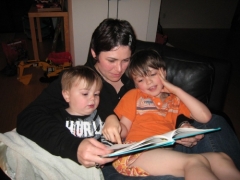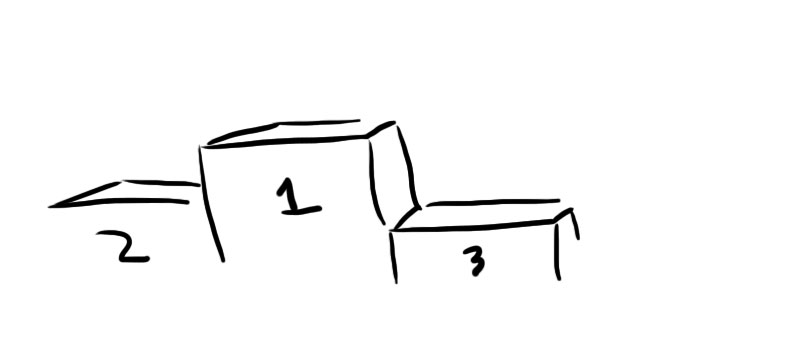In The Everlasting Man, G.K. Chesterton wrote, "There are no rules of architecture for a castle in the clouds."
In its immediate context, Chesterton is writing about make-believe and mythology. Broadly speaking, though, the quote offers some wonderful insights into human imagination and creativity. Children in particular are more often than not open to a world of wonder that adults often miss, have forgotten, or have "outgrown."
The Chesterton quote came to mind as I was pondering a recent interaction I had with my 11-year-old son. Home education offers some fantastic opportunities to observe and cultivate your children's interests in ways that parents otherwise might miss. We have a lot of books in our house--so many, in fact, that we're running out of wall space for shelves! This provides our four children with opportunities to browse the shelves and the wide range of subjects the books span.
My son recently expressed an interest in castles. He began to draw maps and diagrams on graph paper showing a drawbridge, towers, moat, courtyard, etc. I asked him about it one day and he didn't say much, but I mentioned that I thought we had some books on castles so if he was interested we could track them down. The next day he asked me some questions about castle-related terminology. It's remarkable how many specialized terms are used in relation to castles!
After some searching through our library, we came across two books about castles and also a helpful diagram in an illustrated reverse dictionary. Later I found him in his room quietly sitting at a table with two of the books: Castle by David Macaulay and the DK book Castle.
My son's interest in castles was not part of our scheduled curricula at this time, but rather than seeing this as a distraction or interruption I saw an opportunity to cultivate his interest, spur his imagination, and, yes, also help him learn.
Homeschooling is a great adventure for both parents and children. Schedules and planning are important, but don't miss out on unscheduled opportunities to encourage your child's interests. They are at an age of wonder and imagination. With a little effort we can help them build castles in the clouds.
What do you do to encourage your child's interests?
Robert Velarde
Author/Educator/Philosopher













